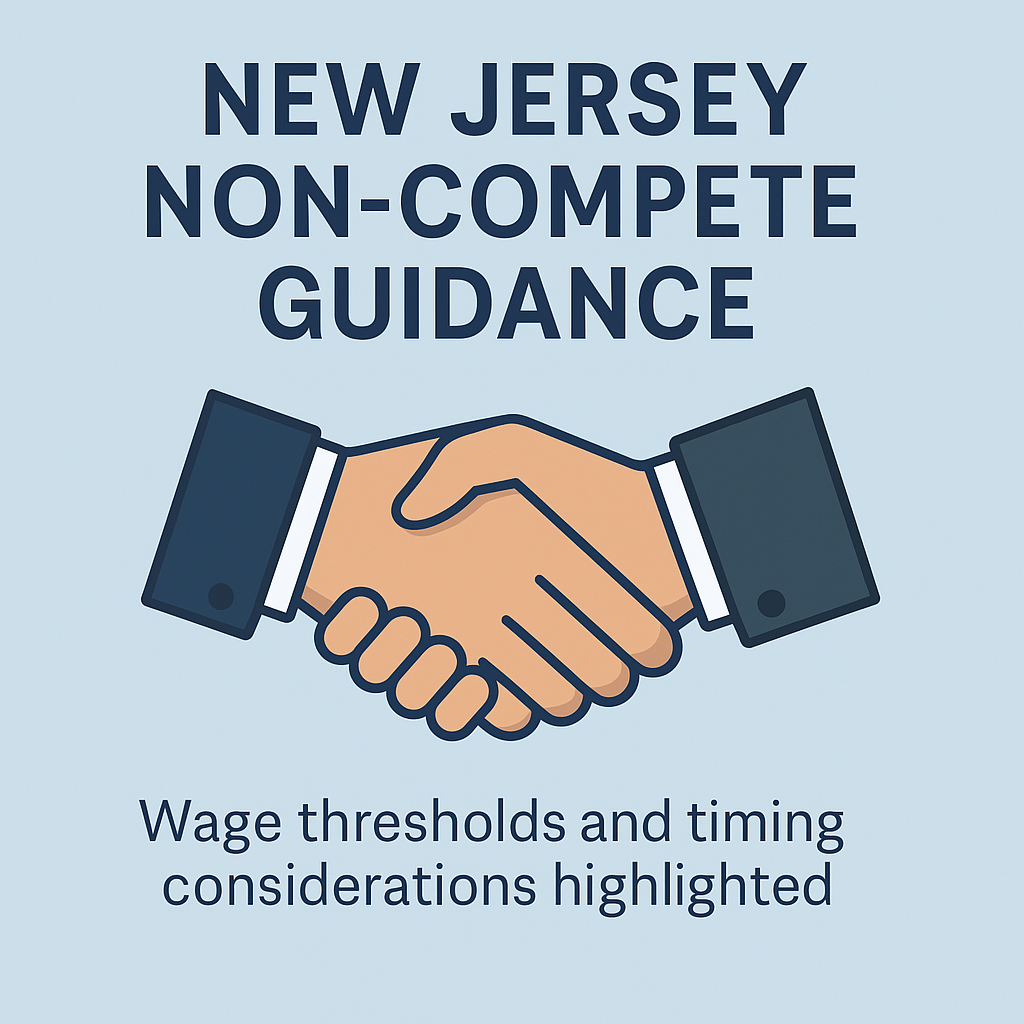Status of Non‑Compete Ban in New Jersey

- On May 19, 2025, the New Jersey Legislature introduced Senate Bill S4385 (also known in the Assembly as A5708), which if passed, would prohibit non-compete agreements for most workers, including retroactive application—meaning existing non-competes would be voided too The Wall Street Journal+15Labor & Employment Law Blog+15Jackson Lewis+15.
- The only exceptions under current drafts:
- Senior executives (e.g. policy-makers earning at least ~$151k/year), subject to strict conditions including limits of up to 12 months, geographic and role restrictions, and disclosure requirements within 30 business days of enactment tradesecretsandemployeemobility.com+10Labor & Employment Law Blog+10Saiber+10HR Law Talk+3Jackson Lewis+3National Law Review+3.
- Non-compete clauses tied to bona fide business sales or accrued causes of action before the bill’s effective date Fox Rothschild+10Jackson Lewis+10National Law Review+10.
- Employers would be required to notify affected workers in writing within 30 days after the law’s passage that their non-competes are no longer enforceable, and no-poach agreements would also be banned as against public policy HR Law Talk+6Ogletree+6Jackson Lewis+6.
Current Status: Bill Proposed, Not Enacted Yet
As of now, S4385/A5708 is pending in the Senate Labor Committee and has not yet been enacted into law. But if passed, it would bring sweeping changes to employment agreements in New Jersey.
⚖️ Why This Matters to Employers
- Wage thresholds: Employers must exempt lower-wage workers from restrictive covenants.
- Timing: Agreements given after employment begins may be invalid.
- Scope: The restrictions (duration, geography, roles) must be reasonable and job-related.
- Worker rights: Courts in New Jersey already enforce reasonableness standards and protect employee mobility—even absent statute → broader changes may reinforce these norms New Jersey 101.5+11HR Law Talk+11tradesecretsandemployeemobility.com+11Ogletree+14jerseyemploymentlawyers.com+14Wikipedia+14Wikipedia.
✅ What Should Employers Do Now
- Audit existing agreements, especially for non-compliance risk.
- Be ready to notify employees if the bill passes.
- Consult legal counsel to adapt policies for multistate operations and ensure enforceability.
